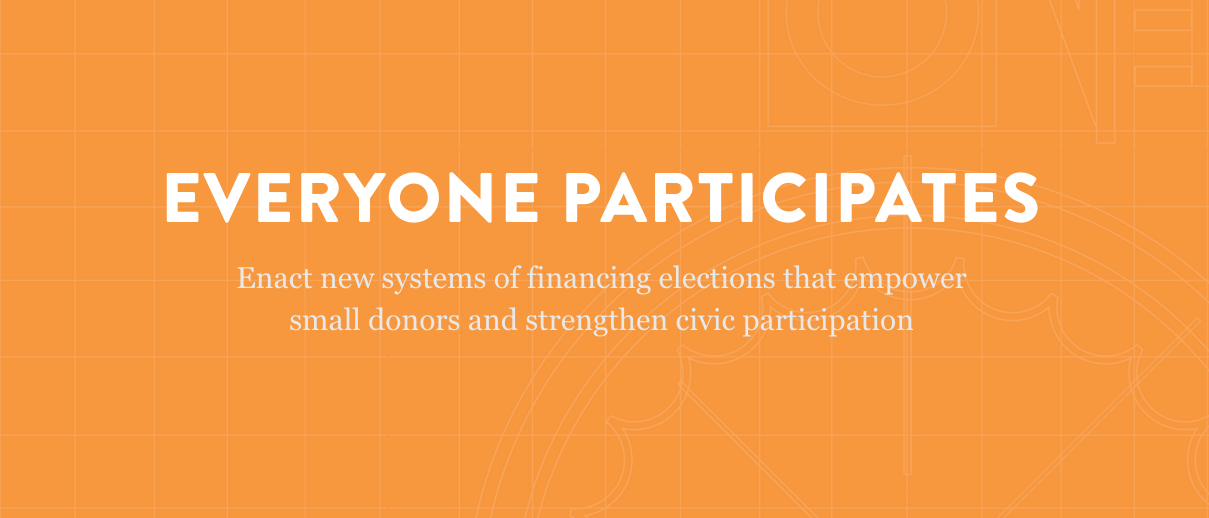Archived
And the Oscar for worst campaign system goes to…
While no one was looking, the Academy of Motion Picture Arts and Sciences, the organization that hosts the Academy Awards, issued a major change in its campaigning policy this month.…
Archived
Over the coming weeks, we’ll be highlighting policies from the Blueprints for Democracy, a new collection of solutions policymakers can implement to give everyone a greater say in their democracy. Read the full series here.
Citizen funding programs, known elsewhere as public financing, offer a proven and effective means of empowering the general public to participate in the democratic process. Under the current status quo, large donors have their voices heard and their priorities frontloaded because these individuals are the ones who can afford to underwrite increasingly expensive campaigns.
In order to expand political participation and increase the relative influence of the small-dollar donor, the various forms of citizen funding programs provide funds to candidates who pledge to raise small contributions in their communities and limit the amount they accept from any individual donor.
Citizen funding better serves those involved in elections on both sides—candidates and voters. Those running for office can campaign, visibly unbeholden to special interests, all the while actually building a broad base of constituent support by going to community meetings and town halls, rather than spending so much time fundraising.
There are several types of citizen funding, each with different characteristics and benefits.
Citizen funding programs help to revitalize democracy by enabling more people to participate. The political system these programs create is not only more open, it’s stronger and more responsive, since politicians will advocate for the people who funded their campaigns—in this case, their constituents. With their issues being heard, voters feel more represented, which leads them to become further invested in policy and governance. This is exactly the kind of positive cycle we desperately need in our political system.
In the next Blueprints for Democracy post, we’ll look at the states and cities that have already put these effective reforms in place, along with the lessons other policymakers can learn from their innovations.
Issue: Money in Politics
Archived
While no one was looking, the Academy of Motion Picture Arts and Sciences, the organization that hosts the Academy Awards, issued a major change in its campaigning policy this month.…
Archived
Today, the Federal Election Commission (FEC) fined three so-called “dark money” organizations for violating campaign finance laws by failing disclose the source of funds used for political spending and advertisements.…
Archived
Yesterday, the U.S. Supreme Court decided McDonnell v. United States, an important corruption case involving the former Governor of Virginia. It’s easy to get lost in the news coverage, so here’s…
 (Blueprints for Democracy - Everyone Participates)
(Blueprints for Democracy - Everyone Participates)
